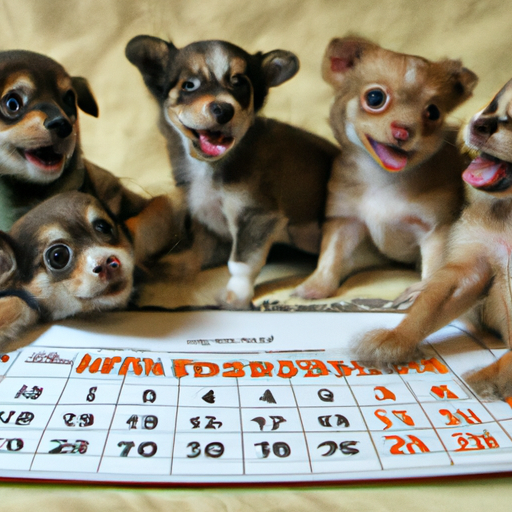As a caregiver, you’re likely curious about your new furry friend – just how long can you expect your little pup to remain a puppy? In this comprehensive guide, we’ll explore everything you need to know about your puppy’s growth and development.
1. Understanding Puppyhood
When you bring a new puppy into your home, you’re not just gaining a pet, but a new family member. During the first few months of your puppy’s life, they’ll undergo significant changes. But, when does puppyhood actually end?
Most canines are considered puppies until they reach one year of age. However, this can vary depending on factors such as breed, size, and individual development.
2. Growth Stages of Puppies
Puppies go through several distinct stages of growth:
- Neonatal Period (Birth to two weeks): During this stage, puppies are mostly eating and sleeping.
- Transitional Period (Two to four weeks): Puppies begin to open their eyes, develop teeth, and start to walk.
- Socialization Period (Four to twelve weeks): Puppies become more interactive and start to learn basic commands.
- Juvenile Period (Three to six months): Puppies start teething and may engage in more playful behavior.
- Adolescence (Six months to one year): Puppies reach sexual maturity and may test boundaries.
3. The Role of Breed and Size
Breed and size play crucial roles in determining how long a dog remains a puppy. Smaller breeds tend to mature faster than larger ones.
Here’s a simple table to illustrate:
| Size | Typical End of Puppyhood |
|---|---|
| Small | 9-12 months |
| Medium | 12-16 months |
| Large | 18-24 months |
4. Behavioral Development
Just because a dog is physically mature, it doesn’t mean they’re mentally mature. Dogs may still exhibit puppy-like behavior, such as playfulness and curiosity, beyond their first year.
5. The Importance of Nutrition
Proper nutrition is critical during your puppy’s growth phase. Ensure your puppy gets a balanced diet, specifically formulated for puppies. This will support their growth and development.
6. Regular Vet Check-ups
Regular vet check-ups are crucial during your pup’s growth phase. Your vet can monitor your puppy’s health, administer necessary vaccinations, and provide advice on feeding and care.
7. Training Your Puppy
Training should start early in your puppy’s life. This includes socialization, house training, and basic obedience training. It’s a crucial part of their development and helps shape them into well-behaved adult dogs.
8. Dealing with Adolescent Puppies
While your puppy may not look like a puppy anymore, they can still act like one. Expect some rebellious behavior during this adolescent phase. Be patient, consistent, and reinforce good behavior.
Frequently Asked Questions
Q1: Can puppies transition to adult food before they’re one year old?
A1: It’s best to consult with your vet, as different breeds mature at different rates.
Q2: My puppy is still chewing a lot even after teething. Is this normal?
A2: Yes, many puppies continue to chew as they explore their environment. Provide appropriate chew toys to save your furniture.
Q3: My one-year-old dog still acts like a puppy. Is this normal?
A3: Absolutely! Many dogs continue to show puppy-like behavior beyond their first year.
Remember, every puppy is unique and will develop at their own pace. Enjoy this special time with your pup, as they won’t be a puppy forever!



